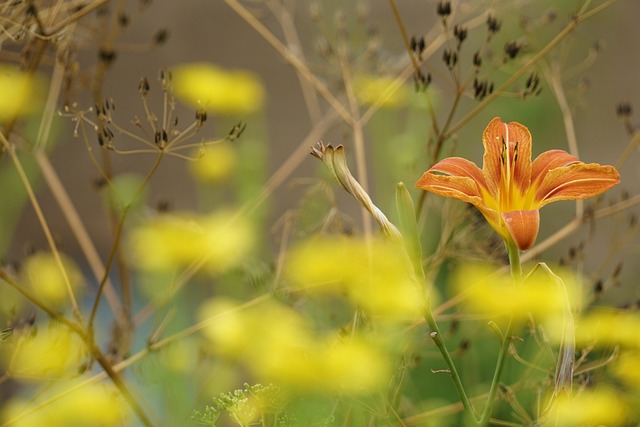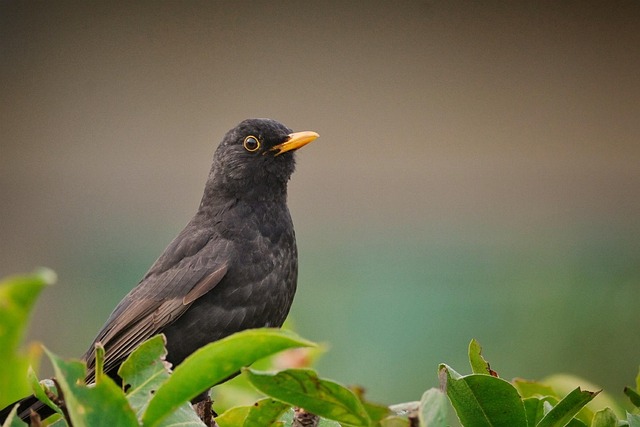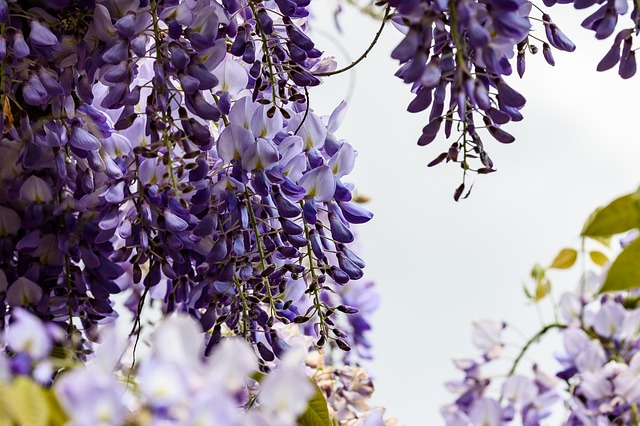Seasonal garden maintenance is key to a healthy, vibrant space year-round. Spring prep involves organic soil amendments and targeted fertilizing; summer requires consistent watering for root development; fall cleanup removes dead plant matter; and winter protection includes mulching for insulation and moisture retention. Pruning seasonal plants, following specific fertilizing schedules, and implementing mulching techniques during each season promotes robust growth, prevents pest issues, and ensures garden longevity.
As the seasons shift, your garden requires tailored care to thrive. This comprehensive guide navigates the crucial aspects of seasonal garden maintenance, ensuring your outdoor space flourishes through every change. From spring’s promising preparation and summer’s vital watering practices to fall’s essential cleanup and winter’s protective measures, learn how to prune seasonal plants, fertilize according to schedules, and even choose the right cover for cold months. Embrace these strategies for a vibrant, thriving garden year-round.
- Spring Garden Preparation: Setting the Stage for a Vibrant Season
- – Assessing Winter Damage
- – Sowing Seeds and Planting Young Plants
- – Fertilizing for Spring Growth
Spring Garden Preparation: Setting the Stage for a Vibrant Season

Spring marks a fresh start for your garden, and proper preparation in this season sets the stage for a vibrant and healthy growing year ahead. Seasonal garden maintenance begins with assessing what needs to be done to ensure your plants thrive during the changing weather. One of the most crucial steps is considering the specific fertilizing schedules by season tailored to your region’s climate. Applying organic matter and nutrients in early spring encourages robust growth, ensuring your plants have the necessary fuel for the coming months. Additionally, pruning seasonal plants is essential; remove any dead or damaged wood, trim back perennials, and shape trees to promote new, healthy growth.
As summer approaches, remember that consistent watering tips will vary with each season. In spring, focus on thoroughly soaking the soil to encourage deep root development. Once established, many plants require less frequent but more extensive watering to mimic natural rainfall patterns. Fall cleanup strategies are also vital; remove any dead plant matter and debris to prevent pest issues and diseases. Protect your garden over winter by applying mulch around plants, which insulates roots from extreme cold and helps retain moisture—a key strategy for successful mulching during seasonal changes. Seasonal pest control measures should also be considered, as different insects and pests emerge in each season. Stay proactive to ensure a thriving garden throughout the year.
– Assessing Winter Damage

As the seasons change from summer to fall, it’s crucial to assess any potential winter damage that may have occurred in your garden. This step is integral to your seasonal garden maintenance routine. During fall cleanup strategies, take note of any dead or damaged plants, stems, and leaves. These could be signs of pests or disease, or simply the natural cycle of some plants. Pruning seasonal plants is essential during this time; remove any deadwood and trim back perennials to encourage new growth in spring.
Fall is also an ideal time for fertilizing schedules as it prepares your garden for winter dormancy and supports robust regrowth in spring. Apply fertilizers specifically designed for fall use, following the instructions carefully. Additionally, consider mulching to protect plant roots from cold temperatures, freeze-thaw cycles, and erosion – techniques that enhance soil health and moisture retention throughout the season, aligning with both summer watering tips and seasonal garden maintenance practices. Implementing these fall cleanup strategies and winter garden protection methods ensures your garden’s resilience and beauty as it transitions into spring.
– Sowing Seeds and Planting Young Plants

As the seasons shift, your garden enters a new phase requiring specific care to ensure its longevity and vibrancy. One crucial aspect is sowing seeds and planting young plants at the right time. For spring arrivals, prepare your soil with organic matter and follow fertilizing schedules tailored for early growth. Start with cool-season crops and flowers known for their resilience during transition periods.
During summer, remember consistent watering tips to keep newly planted seeds and seedlings healthy. As fall approaches, implement fall cleanup strategies by removing dead plant matter and weeds to prevent pest control issues. Prune seasonal plants, ensuring they’re ready for the colder months ahead. Mulching becomes essential for winter garden protection, insulating roots and preserving soil moisture throughout the season’s changes.
– Fertilizing for Spring Growth

As fall transitions into winter, it’s crucial to prepare your garden for the upcoming season. One essential step in seasonal garden maintenance is fertilizing. The right fertilizer at the appropriate time can significantly enhance spring growth. For best results, consider using a slow-release fertilizer in early fall, allowing plants to build up nutrients before dormancy. This strategy ensures a robust start for your garden come spring.
During fall cleanup strategies, pay close attention to pruning seasonal plants. Remove any dead or diseased branches and trim back perennials to prepare them for winter protection. Additionally, mulching is vital for insulating plant roots during colder months, retaining soil moisture, and suppressing weeds. Implement these summer watering tips and fall cleanup routines to ensure your garden thrives, even as the seasons change. Remember that proper seasonal pest control measures are also necessary to protect plants from insects and diseases throughout the year.
As we transition into fall, it’s crucial to implement effective seasonal garden maintenance routines. By assessing any winter damage, adopting appropriate pruning techniques, and following tailored fertilizing schedules, you can ensure your garden thrives throughout the year. Incorporating regular fall cleanup strategies, such as removing dead plants and mulching, will not only protect your garden from harsh winters but also prepare it for a vibrant spring. Remember, seasonal pest control measures are essential to maintain a healthy landscape, so stay proactive to prevent unwanted visitors. With these strategic steps, your garden will flourish during the changing seasons, creating a stunning symphony of colors and textures that will delight you year-round.
